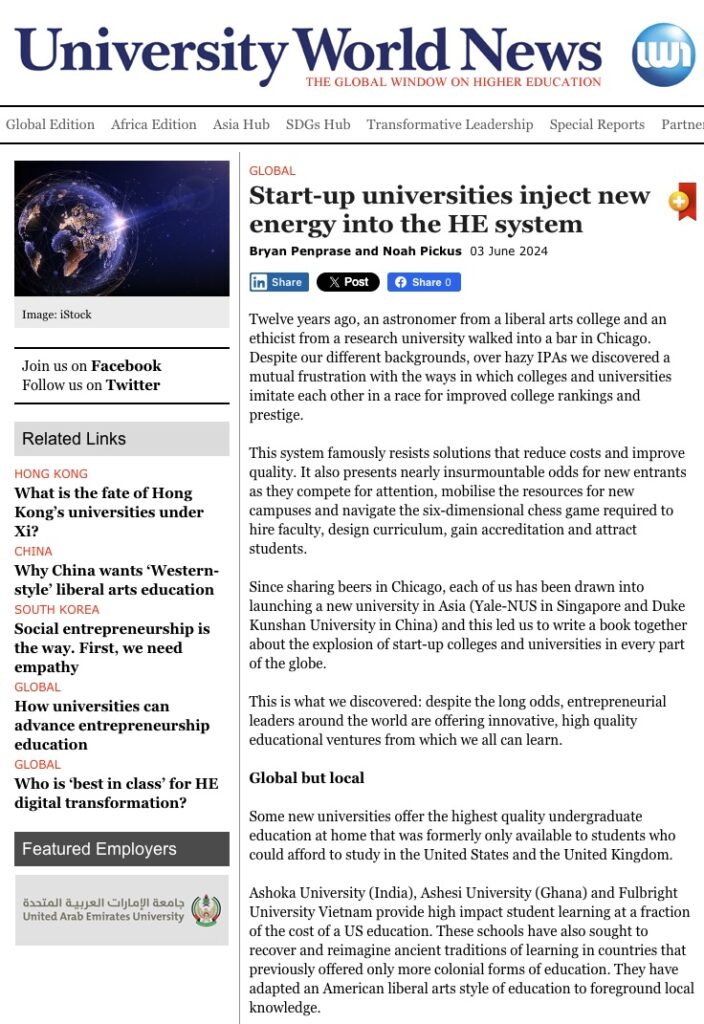My co-author, Noah Pickus, and I published a recent article in University World News entitled “Startup Universities inject new energy into the HE system.” The article opens with a story of how Noah and I came together to begin our book project, and how the global journeys that Noah and I took in our lives helped us experience some of the excitement of starting new universities and helping create new models of higher education in Asia and how these new universities give alternative and novel approaches to learning that are so much needed in today’s world.
The article describes how these new universities in some cases help students in countries like Ghana, India and Vietnam receive a top-quality liberal arts education at a small fraction of the price that it would take to travel to the US or Europe, and by staying within their home country or region, are more likely to then be retained as leaders and scholars within those regions to help advance their economies and cultures. The article also describes new approaches to staffing, and how many of these new universities have been able to avoid granting tenure (using long-term contracts instead) and creating competing department, and how this approach has reduced costs and increased campus unity and coherence.
The article also gives examples of many of the innovative advances provided by these new universities. To provide a brief quote, here is a section from the article about these innovations:
Examples include the four-year leadership curriculum at Ashesi University in Ghana, which allows students to integrate lessons from the classroom with their lives as students as they become the type of ethical entrepreneurial leaders that Ashesi hopes will promote a ‘renaissance in Africa’.
Also, new courses in Vietnamese studies developed at Fulbright University Vietnam, which explore the many dimensions of Vietnam’s culture, politics and economics as it has evolved after the ‘American War’ of the previous century.
Many start-ups, by abandoning disciplinary departments, can also structure their degree programmes along interdisciplinary lines of inquiry that strongly incorporate experiential learning.
Examples include the African Leadership University, which has several immersive internships and real-world experiences as part of the curriculum in entrepreneurship, and the project-based learning curriculum at Olin College of Engineering, where students begin designing new inventions in their first year of study, and continue through all four years to even develop designs for their own companies as part of the curriculum.
(From our article, “Start-up universities inject new energy into the HE system,” June 3, 2024, University World News).

We are grateful to University World news for the speedy publication of the article, and for the help it gave us in reaching an important new audience for our book.
